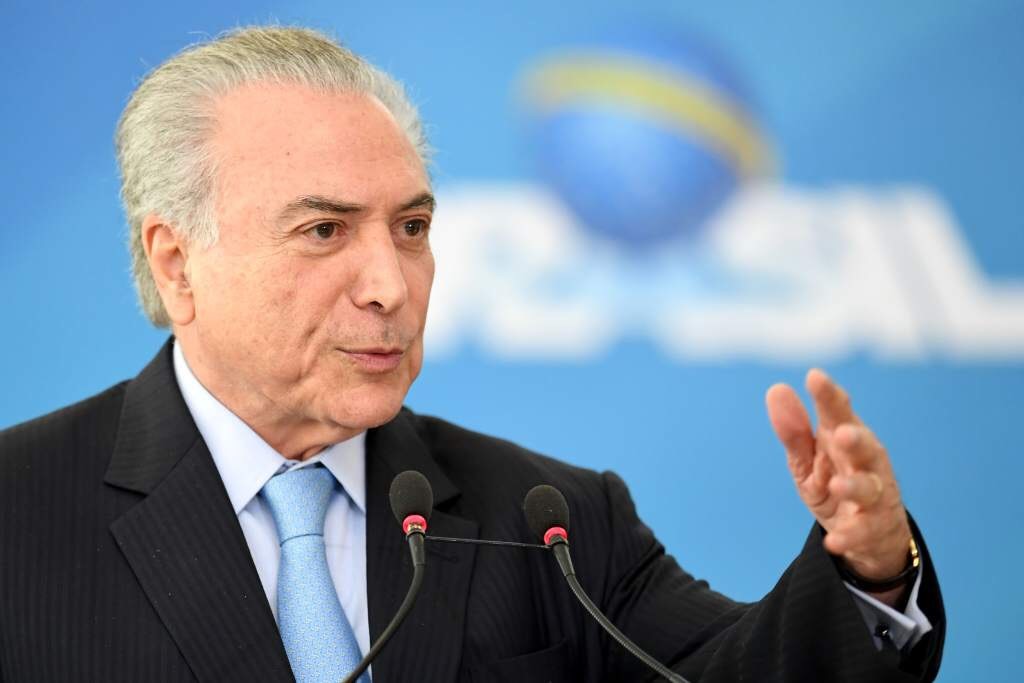Brazil: President Temer’s Attempt to Revive the Former Latin American Powerhouse
 Thanks to the ruling majority in the Brazilian Parliament, President Michel Temer, a self-styled political centrist, was barely saved on August 2, 2017, from undergoing a corruption trial that could have led to his dismissal and potential imprisonment. The Brazilian president is accused of accepting bribes in exchange for granting political favours to various Brazilian companies and politicians since 2010. According to secret telephone recordings taken of the president, these illegal practices reportedly continued after Temer took the presidential reigns. Regardless of the judicial fate of the Brazilian president, the fact that his mandate is peppered with scandals reflects how corruption has spread throughout the Brazilian political system like a cancer metastasized across the halls of power.
Thanks to the ruling majority in the Brazilian Parliament, President Michel Temer, a self-styled political centrist, was barely saved on August 2, 2017, from undergoing a corruption trial that could have led to his dismissal and potential imprisonment. The Brazilian president is accused of accepting bribes in exchange for granting political favours to various Brazilian companies and politicians since 2010. According to secret telephone recordings taken of the president, these illegal practices reportedly continued after Temer took the presidential reigns. Regardless of the judicial fate of the Brazilian president, the fact that his mandate is peppered with scandals reflects how corruption has spread throughout the Brazilian political system like a cancer metastasized across the halls of power.
In May 2016, then Vice-President Temer assumed the presidency on an interim basis, after the destitution of the now former President Dilma Rousseff, who was found guilty of hiding budgetary irregularities during her presidency. Both the prosecution of Rousseff, who has long been the protégé of former President Luiz Inácio Lula da Silva – once the most popular president in Brazil’s recent history and who has recently been sentenced to nearly ten years in prison for corruption and money laundering charges – reveal the severity of how corruption has grown in the leftist Workers’ Party over the years, most notably the sprawling corruption scandal at the giant state-run oil company Petrobras.
Although the two consecutive presidencies of Lula, as he is universally known, and that of Rousseff achieved notable reductions in poverty rates over their decades in power when they presided over an oil-boom economy, it is inarguable that they failed to stem the long-held endemic mixture of corruption and abuse of power in Brazilian politics, prompting the social protests during the 2014 World Cup and the 2016 Olympic Games. Ultimately, the scandal helped topple the Workers’ Party from power by crushing the popularity of Lula’s chosen successor, former President Rousseff.
Nevertheless, with Temer in power, the right (and centrists) have shown themselves just as incapable of extracting themselves from the allure of corruption and bringing stability to Latin America’s former economic giant. Brazil’s recent economic growth is abysmal. Discounting for the near-failed state of Venezuela, Brazil is the worst performer among the large countries in Latin America. According to a World Bank report released in June 2017, Brazil’s GDP is projected to grow by just 0.3 percent in 2017 and 1.8 percent in 2018. By comparison, Brazil’s neighbour and regional rival, Argentina, is forecasted to grow at 2.7 percent and 3.2 percent in 2017 and 2018, respectively.
Temer’s main mission was to return political and economic stability to Brazil but has yet to deliver on these objectives. Politically, while he survived the Congressional vote and avoided the possibility of being tried for corruption, he is not off the hook yet. In fact, he is facing very low approval ratings along with the possibility that the public prosecutor may file more corruption-related cases against him in the coming months.
Economically, Temer’s implacable corruption troubles have sidelined his government’s reform agenda that it triumphantly announced when it came into power. Namely, the government was slated to pass pension reforms by October 2017 and a complete tax overhaul by the end of the year; two key measures aimed at correcting the hobbled economy.
While Temer may succeed in implementing some of these reforms, Brazil will remain relegated to holding the unenviable title of being Latin America’s former heavyweight, a title it does not deserve given the vast economic potential it possesses. Nevertheless, until there is comprehensive reduction in corruption within Brazil’s political class, the country will remain a shadow of its former self.

